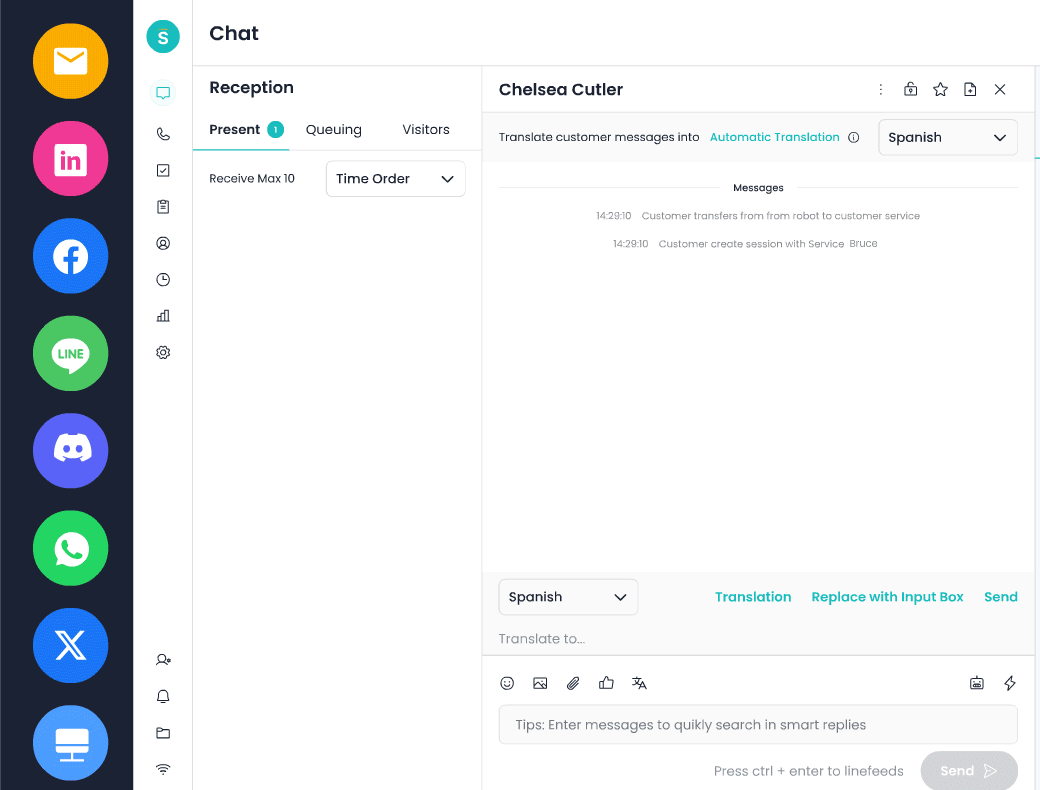Importance of ACD Technology in Contact Center
Automatic contact Distribution (ACD) technology is essential for contact centers since it allows for the effective management of incoming calls. An automated call distribution system ensures that incoming calls are directed to the most suitable agent or department, reduces hold times, and streamlines the communication process. ACD ensures that callers are connected to the appropriate agent in a timely and efficient manner by allocating calls to available agents following predefined standards.
ACD Routing Algorithm and Techniques
The routing algorithm used by ACD chooses the most qualified agent to answer each call based on factors like agent availability, caller preferences, and skill set. A contact center may use a combination of call distribution techniques, such as round-robin, skills-based routing, and priority-based routing, depending on its particular requirements.
Improved Call Center Operations with Workforce Optimization
Call center operations may be further improved by integrating ACD with workforce optimization technologies. This connection enables more effective personnel management, real-time monitoring, and complete reporting capabilities.
Benefits of an ACD System
A contact center may profit greatly from the implementation of an ACD system. First off, it makes sure that callers are linked to the most competent agent who can quickly attend to their queries, which results in higher customer satisfaction. As a result, customers get more individualized service and faster response times.
Real-Time Reporting and Analytics for Better Decision Making
Real-time reporting and analytics are provided by ACD systems, which allow managers to monitor consumer wait times, agent performance, and call volumes. This information helps with data-driven decision-making, resource optimization, and identification of improvements.
Call Queuing and Skill-Based Routing
Call queuing guarantees that consumers are queued until an agent is available, while skill-based routing routes calls to agents who possess the requisite expertise to address specific inquiries or concerns. These features, when taken together, simplify the process of answering calls, boost the productivity of agents, and increase the overall satisfaction provided to customers.
What advantages does the ACD solution offer?
Smart call scheduling helps you to answer consumer calls more effectively. Customers can still communicate with the appropriate agent promptly, regardless of the volume of calls. Usually, an automated call distribution contact center provides the following advantages:
Improved Customer Service
ACD systems direct calls to the most appropriate agents, therefore lowering wait times and improving overall customer service.
Handling Large Call Volume
Advanced Call Distribution (ACD) systems improve efficiency in handling large numbers of incoming calls by routing calls according to agents’ availability and skill sets.
Less Operating Cost
Effective call routing helps agents manage more phone calls in a shorter period, therefore enabling a decrease in operating expenses.
Focus on More Critical Tasks
Agents may concentrate on challenging tasks while automated call distributors handle regular calls and provide self-service alternatives for clients.
Workload Management
An equitable distribution of calls among agents prevents overburdening and ensures a balanced task, leading to improved workload management.
How Should Your Call Center Select an ACD System?
With the right ACD system, call centers can be much more productive, keep customers happy, and be more efficient. Be careful when you make your decision.
Here are a few tips for selecting the appropriate ACD system:
- Estimate your call volume. It is important to take into consideration the amount of agents that you need to support, as well as high call hours and seasons, and anticipated growth. This will let you choose an ACD fit for your capacity.
- Assess the necessary routing principles and call categories. Do you require straightforward policies, such as round-robin or skills-based routing for specific agents? Or with more complicated rules about preference and overflow? Verify whether the system can handle the desired call flows.
- Check analytics and reports. A quality ACD helps you comprehend caller data, call statistics, response times, quality of service, and more by providing fast, real-time, and forecast statistics. Choose an option that offers comprehensive reporting capabilities.
- Make sure it’s adaptable and scalable. Your demands could evolve over time so pick an ACD that permits simple configuration changes and scaling up and down as required. Many times, cloud-based technologies are more adaptable.
- Determine how easy it is to integrate. Make sure the ACD has robust integration features and APIs whether you are merging with CRM or another system.
- Take into account the total cost of ownership over a period of 3-5 years, rather than just the initial expenditures. Cloud subscription solutions need recurring subscription fees but have cheaper initial expenses.
- Search for a simple desktop agent tool. For call center agents, a basic, straightforward design enhances their experience.
- Value excellent technical assistance, training materials, and documentation very highly. Look for an ACD provider offering strong post-implementation assistance.






